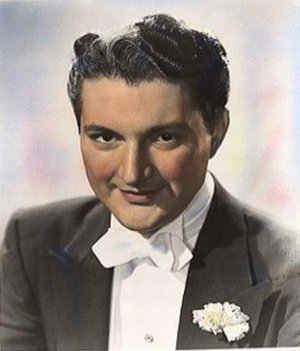underwear fun
Well-known Member
Some of us may have asked ourselves: why am I gay? And it may not have even occurred to others to ask themselves: why am I straight? Or indeed why am I transgender, bi-sexual, bi-curious etc. Has anyone got an answer scientific or not?
I’ve been wondering about this for a few years now as it is something I feel goes to defining who I am. It seems to me that the ‘scientific world’ is still not clear but frequently terms like ‘sexuality is pre-determined’ and ‘that people's behaviour is influenced by their family environment’ arise. Last year I watched an insightful two part series on the BBC called ‘The Secret Life of Twins’. The first part looked at what science can learn from the uncanny similarities between twins and the second part focuses on how the differences between identical twins can help science understand what makes us all who we are.
BBC news article: http://news.bbc.co.uk/2/hi/8280431.stm
BBC 1 programme article: http://www.bbc.co.uk/programmes/b00n462v
Most people are used to thinking of our DNA as a fairly fixed code, a bit like a blueprint for a building. We know that some things can change the code itself - exposure to radiation can cause mutations that lead to an increased risk of cancer for example - but usually the code remains the same. However, production of the molecules for which our genes are responsible - things like digestive enzymes and muscle protein - is constantly getting switched on and off. And it seems that some environmental influences can have much more lasting effects - permanently activating or inactivating certain genes. It is becoming apparent that this aspect of genetic control - a process dubbed epigenetics - is very important in human health.
The programme presented case after case of differences between identical twins like twin girls where one developed cancer and the other didn’t, identical brother’s that grew up to be 185cm and the other 183cm tall. The programme concluded that our DNA is not fixed but can be changed by our environment. ‘Nature’ AND ‘nurture’. Dormant DNA aspects can be switched on individually due to illness, lifestyle and diet etc. or changes can be wider spread like in 1944 there was a severe famine in Holland. The children born during this period are more susceptible to diabetes, obesity and heart disease compared to siblings who were older during the famine. It seems that the period of starvation prompted their bodies to switch certain genes on or off to cope with the lack of food.
They presented identical twins Mark and John (exactly the same genes) who are helping scientists to explore the possible genetic basis of sexuality, they may be genetic clones but John is gay and Mark straight - they want to understand what makes them different.
I remember a gay guy I took home a couple of years ago saying to me after sex that he thought that your first sexual experience influenced your sexuality. For him, a school bully took him behind a school shed and made him suck his cock. So it got me wondering whether people are actually born with a propensity (to varying degrees) for a particular sexual preference and that after birth environmental factors then play a part as the whether the born preference dominates or changes during their life. Interesting.
On September 6, 2010, one of the most ambitious large-scale projects in Human Genetics has been launched: Epitwin will capture the subtle epigenetic signatures that mark the differences between 5,000 twins on a scale and depth never before attempted, providing key therapeutic targets for the development of drug treatments. The project is a collaboration between TwinsUK, a leading twin research group based at King’s College London, and BGI, one of the world’s largest genomic organisations headquartered in Shenzhen, China. Epigenetics is the most cutting edge emerging field in Genetics, which explores how the actions of genes can be temporarily modified by chemical reactions that may occur either at random or by lifestyle or diet. This effect may last several generations.
http://www.twinsuk.ac.uk/
I hope research like this will conclusively show if there is any genetic basis to sexuality and if so what it is and to quash the old believes that ‘homosexuality is an illness’. I think that when society can conclusively answer the question ‘Why am I gay?’ we can all move on and young teenagers will stop killing themselves needlessly.
Undie (just having a serious moment)
I’ve been wondering about this for a few years now as it is something I feel goes to defining who I am. It seems to me that the ‘scientific world’ is still not clear but frequently terms like ‘sexuality is pre-determined’ and ‘that people's behaviour is influenced by their family environment’ arise. Last year I watched an insightful two part series on the BBC called ‘The Secret Life of Twins’. The first part looked at what science can learn from the uncanny similarities between twins and the second part focuses on how the differences between identical twins can help science understand what makes us all who we are.
BBC news article: http://news.bbc.co.uk/2/hi/8280431.stm
BBC 1 programme article: http://www.bbc.co.uk/programmes/b00n462v
Most people are used to thinking of our DNA as a fairly fixed code, a bit like a blueprint for a building. We know that some things can change the code itself - exposure to radiation can cause mutations that lead to an increased risk of cancer for example - but usually the code remains the same. However, production of the molecules for which our genes are responsible - things like digestive enzymes and muscle protein - is constantly getting switched on and off. And it seems that some environmental influences can have much more lasting effects - permanently activating or inactivating certain genes. It is becoming apparent that this aspect of genetic control - a process dubbed epigenetics - is very important in human health.
The programme presented case after case of differences between identical twins like twin girls where one developed cancer and the other didn’t, identical brother’s that grew up to be 185cm and the other 183cm tall. The programme concluded that our DNA is not fixed but can be changed by our environment. ‘Nature’ AND ‘nurture’. Dormant DNA aspects can be switched on individually due to illness, lifestyle and diet etc. or changes can be wider spread like in 1944 there was a severe famine in Holland. The children born during this period are more susceptible to diabetes, obesity and heart disease compared to siblings who were older during the famine. It seems that the period of starvation prompted their bodies to switch certain genes on or off to cope with the lack of food.
They presented identical twins Mark and John (exactly the same genes) who are helping scientists to explore the possible genetic basis of sexuality, they may be genetic clones but John is gay and Mark straight - they want to understand what makes them different.
I remember a gay guy I took home a couple of years ago saying to me after sex that he thought that your first sexual experience influenced your sexuality. For him, a school bully took him behind a school shed and made him suck his cock. So it got me wondering whether people are actually born with a propensity (to varying degrees) for a particular sexual preference and that after birth environmental factors then play a part as the whether the born preference dominates or changes during their life. Interesting.
On September 6, 2010, one of the most ambitious large-scale projects in Human Genetics has been launched: Epitwin will capture the subtle epigenetic signatures that mark the differences between 5,000 twins on a scale and depth never before attempted, providing key therapeutic targets for the development of drug treatments. The project is a collaboration between TwinsUK, a leading twin research group based at King’s College London, and BGI, one of the world’s largest genomic organisations headquartered in Shenzhen, China. Epigenetics is the most cutting edge emerging field in Genetics, which explores how the actions of genes can be temporarily modified by chemical reactions that may occur either at random or by lifestyle or diet. This effect may last several generations.
http://www.twinsuk.ac.uk/
I hope research like this will conclusively show if there is any genetic basis to sexuality and if so what it is and to quash the old believes that ‘homosexuality is an illness’. I think that when society can conclusively answer the question ‘Why am I gay?’ we can all move on and young teenagers will stop killing themselves needlessly.
Undie (just having a serious moment)











